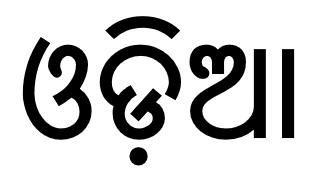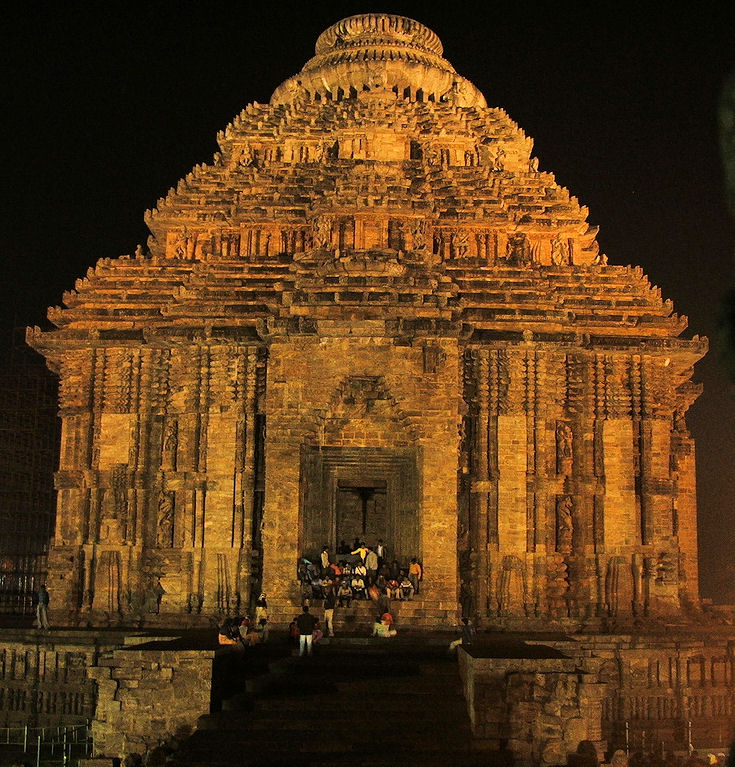|
Samaja
''The Samaja'' is an Odia daily newspaper published in Cuttack, Odisha, India; started in 1919, it is one of the oldest papers in India. Gopabandhu Das, a prominent freedom fighter and social worker started it as a weekly from Satyabadi Satyabadi (Sl. No.: 109) is a Vidhan Sabha constituency of Puri district, Odisha. This constituency includes Satyabadi block and Kanas block. Elected Members Fifteen elections were held between 1951 and 2009. Elected members from the Satya ... in Puri district of Odisha to facilitate the freedom struggle and to revive the moribund Odia language. Under his leadership, and with the support of local people, the paper grew into prominence. In 1928, just before the death of Das, the paper was handed over to Lok Sevak Mandal (Servants of People Society), a non-profit organization started by freedom-fighter Lala Lajapatrai. The society still runs the paper. References External links * {{Newspapers in India Daily newspapers publi ... [...More Info...] [...Related Items...] OR: [Wikipedia] [Google] [Baidu] |
Cuttack
Cuttack (, or officially Kataka ) in Odia is the former capital and the second largest city in the Indian state of Odisha. It is the headquarters of the Cuttack district. The name of the city is an anglicised form of ''Kataka'' which literally means ''The Fort'', a reference to the ancient Barabati Fort around which the city initially developed. Cuttack is known as the ''Millennium City'' as well as the ''Silver City'' due to its history of 1000 years and famous silver filigree works. The Orissa High Court is located there. It is the commercial capital of Odisha which hosts many trading and business houses in and around the city. Cuttack is famous for its Durga puja which is one of the most important festivals of Odisha. Cuttack is also the birthplace of Netaji Subhas Chandra Bose. The city is categorised as a Tier-II city as per the ranking system used by Government of India. The old and the most important part of the city is centred on a strip of land between the Katha ... [...More Info...] [...Related Items...] OR: [Wikipedia] [Google] [Baidu] |
Gopabandhu Dash
Gopabandhu Das (1877–1928), popularly known as ''Utkalamani'' (''Jewel of Utkal'' or Odisha), was a social worker, reformer, political activist, journalist, poet and essayist. Early life Gopabandhu Das was born on 9 October 1877 in Suando village, near Puri, Odisha in a Brahmin family. His mother was Swarnamayee Devi, the third wife of Daitari Dash. His father was a mukhtiar and the family were reasonably well-off. Das married Apti at the age of twelve but continued his education. He had basic schooling in the village before progressing to a middle school nearby. Then, in 1893, by which time his mother had died, Das joined Puri Zilla School. There he was influenced by Mukhtiar Ramchandra Das, a teacher who was both a nationalist and a proponent of public service in aid of people in distress. Becoming organising his fellow children in the spirit of co-operation, the inadequate response of authorities for the victims of an outbreak of cholera prompted him to start a volunt ... [...More Info...] [...Related Items...] OR: [Wikipedia] [Google] [Baidu] |
Non-profit Organization
A nonprofit organization (NPO) or non-profit organisation, also known as a non-business entity, not-for-profit organization, or nonprofit institution, is a legal entity organized and operated for a collective, public or social benefit, in contrast with an entity that operates as a business aiming to generate a profit for its owners. A nonprofit is subject to the non-distribution constraint: any revenues that exceed expenses must be committed to the organization's purpose, not taken by private parties. An array of organizations are nonprofit, including some political organizations, schools, business associations, churches, social clubs, and consumer cooperatives. Nonprofit entities may seek approval from governments to be tax-exempt, and some may also qualify to receive tax-deductible contributions, but an entity may incorporate as a nonprofit entity without securing tax-exempt status. Key aspects of nonprofits are accountability, trustworthiness, honesty, and openness to ev ... [...More Info...] [...Related Items...] OR: [Wikipedia] [Google] [Baidu] |
Publications Established In 1919
To publish is to make content available to the general public.Berne Convention, article 3(3) URL last accessed 2010-05-10.Universal Copyright Convention, Geneva text (1952), article VI . URL last accessed 2010-05-10. While specific use of the term may vary among countries, it is usually applied to text, images, or other content, including paper ( |
Newspapers Published In Odisha
A newspaper is a periodical publication containing written information about current events and is often typed in black ink with a white or gray background. Newspapers can cover a wide variety of fields such as politics, business, sports and art, and often include materials such as opinion columns, weather forecasts, reviews of local services, obituaries, birth notices, crosswords, editorial cartoons, comic strips, and advice columns. Most newspapers are businesses, and they pay their expenses with a mixture of subscription revenue, newsstand sales, and advertising revenue. The journalism organizations that publish newspapers are themselves often metonymically called newspapers. Newspapers have traditionally been published in print (usually on cheap, low-grade paper called newsprint). However, today most newspapers are also published on websites as online newspapers, and some have even abandoned their print versions entirely. Newspapers developed in the 17th century ... [...More Info...] [...Related Items...] OR: [Wikipedia] [Google] [Baidu] |
Odia-language Newspapers
Odia (, ISO: , ; formerly rendered Oriya ) is an Indo-Aryan language spoken in the Indian state of Odisha. It is the official language in Odisha (formerly rendered Orissa), where native speakers make up 82% of the population, and it is also spoken in parts of West Bengal, Jharkhand, Andhra Pradesh and Chhattisgarh. Odia is one of the many official languages of India; it is the official language of Odisha and the second official language of Jharkhand. The language is also spoken by a sizeable population of 700,000 people in Chhattisgarh. Odia is the sixth Indian language to be designated a classical language, on the basis of having a long literary history and not having borrowed extensively from other languages. The earliest known inscription in Odia dates back to the 10th century CE. History Odia is an Eastern Indo-Aryan language belonging to the Indo-Aryan language family. It descends from Odra Prakrit, which evolved from Magadhi Prakrit, which was spoken in east India ... [...More Info...] [...Related Items...] OR: [Wikipedia] [Google] [Baidu] |
Daily Newspapers Published In India
Daily or The Daily may refer to: Journalism * Daily newspaper, newspaper issued on five to seven day of most weeks * ''The Daily'' (podcast), a podcast by ''The New York Times'' * ''The Daily'' (News Corporation), a defunct US-based iPad newspaper from News Corporation * ''The Daily of the University of Washington'', a student newspaper using ''The Daily'' as its standardhead Places * Daily, North Dakota, United States * Daily Township, Dixon County, Nebraska, United States People * Bill Daily William Edward Daily (August 30, 1927 – September 4, 2018) was an American actor and comedian known for his sitcom work as Major Roger Healey on '' I Dream of Jeannie'', and Howard Borden on '' The Bob Newhart Show''. Early life and ear ... (1927–2018), American actor * Elizabeth Daily (born 1961), American voice actress * Joseph E. Daily (1888–1965), American jurist * Thomas Vose Daily (1927–2017), American Roman Catholic bishop Other usages * Iveco Daily, a la ... [...More Info...] [...Related Items...] OR: [Wikipedia] [Google] [Baidu] |
Lala Lajpat Rai
Lala Lajpat Rai (28 January 1865 - 17 November 1928) was an Indian author, freedom fighter, and politician. He played a vital role in the Indian Independence movement. He was popularly known as Punjab Kesari. He was one of the three members of the Lal Bal Pal trimurti. He was also associated with management activities of Punjab National Bank in early years and Lakshmi Insurance Company in their early stages in 1894. He died of a severe head injury after 18 days of trauma injuries during a baton charge by police in Lahore, when he led a peaceful protest march against the all-British Simon Commission Indian constitutional reforms. Early life Lala Lajpat Rai was born on 28 January 1865 into an Agrawal Jain family as the eldest son of six children of Munshi Radha Krishna, an Urdu and Persian government school teacher and Gulab Devi Aggarwal at Dhudike in the Faridkot district of the Punjab Province of British India (now in Moga district, Punjab, India). He spent much of his ... [...More Info...] [...Related Items...] OR: [Wikipedia] [Google] [Baidu] |
Puri District
Puri district is a coastal district of the Odisha state of India. It has one sub-division, 11 tahasils and 11 blocks and comprises 1722 revenue villages. Puri is the only municipality of the district. Konark, Pipili and Nimapara are the three NACs in this district. Satyabadi, Gop, Kakatpur and Brahmagiri are major semi-urban areas. Name The district is named after its capital city, Puri. In Sanskrit, the word "Puri" means town or city. The city is an important seat of Vaishnavism, and is home to the noted Jagannath Temple built by Anantavarman Chodaganga in the mid 12th century CE. History Pre-history Like many other parts of Odisha, the Puri district contains Pleistocene river gravels and silts. So far, no prehistoric stone tools have been found in this region, although they are found in similar formations (river gravels, secondary laterite pits and murrams) in the nearby districts of Dhenkanal, Mayurbhanj, Kendujhar and Sundergarh. Early records In the dramatic poe ... [...More Info...] [...Related Items...] OR: [Wikipedia] [Google] [Baidu] |
Servants Of The People Society
Servants of the People Society (SOPS) (Hindi ( ISO) : Lōka Sēvaka Maṇḍala ) is a non-profit social service organization founded by Lala Lajpat Rai, a prominent leader in the Indian Independence movement, in 1921 in Lahore. The society is devoted to "enlist and train national missionaries for the service of the motherland". It was shifted to India, following the partition of India in 1947, and functioned from the residence of Lala Achint Ram, a founder member and Lok Sabha, M.P. at 2-Telegraph Lane, New Delhi. In 1960, after the construction of the new building its shifted to Lajpat Bhawan, Lajpat Nagar, in Delhi. Today, it has branches in many parts of India. History With an aim to create missionary social worker freedom fighter, Lala Lajpat Rai, founded the organisation in November 1921. It was inaugurated by Mahatma Gandhi, and Lalaji who had donated his bungalow in Lahore to the organisation and his library of over 5000 books, remained its founding President till his ... [...More Info...] [...Related Items...] OR: [Wikipedia] [Google] [Baidu] |
Odia Language
Odia (, ISO: , ; formerly rendered Oriya ) is an Indo-Aryan language spoken in the Indian state of Odisha. It is the official language in Odisha (formerly rendered Orissa), where native speakers make up 82% of the population, and it is also spoken in parts of West Bengal, Jharkhand, Andhra Pradesh and Chhattisgarh. Odia is one of the many official languages of India; it is the official language of Odisha and the second official language of Jharkhand. The language is also spoken by a sizeable population of 700,000 people in Chhattisgarh. Odia is the sixth Indian language to be designated a classical language, on the basis of having a long literary history and not having borrowed extensively from other languages. The earliest known inscription in Odia dates back to the 10th century CE. History Odia is an Eastern Indo-Aryan language belonging to the Indo-Aryan language family. It descends from Odra Prakrit, which evolved from Magadhi Prakrit, which was spoken in east I ... [...More Info...] [...Related Items...] OR: [Wikipedia] [Google] [Baidu] |







